Former Indian Foreign Secretary AP Venkateswaran assesses Chinese Premier Wen Jiabao and the secret of his overwhelming popularity
Chinese Premier Wen Jiabao, who is visiting India on Wednesday, was re-elected for a second five-year term in March 2008. He has managed to achieve such popularity in his own country that he is often referred to as 'the people's prime minister'. This is a rare tribute, since only Premier Zhou Enlai had earned this accolade before him.
It is of some interest that as a Communist Party official, Wen Jiabao had accompanied the then Premier Zhou Ziyang, when he personally visited the rebel Chinese students who were demonstrating in the Tienanmen Square in 1989, to try and persuade them to disperse peacefully.
Wen was, indeed, fortunate to have survived the fate that befell Zhao, who was forced out of office by former Chinese leader Deng Xiaoping and made to spend the rest of his life under house arrest.
Click on NEXT to read about Wen's secret...
Wen's secret
Image: Wen with President Hu JintaoWen Jiabao first became premier of China in 2003, winning an impressive 99 per cent of the delegates' votes, along with President Hu Jintao, who was also elected at the same time.
Both belong to the so-called 'fourth generation of leadership' of China and have worked harmoniously together since their election.
Presiding over the vast bureaucracy in China is by no means a mean achievement and he has succeeded in this exercise.
The secret lies, perhaps, in Wen's mastery over detail and the unassuming and mild manner in which he goes about achieving consensus, which has gained him much goodwill amongst his peers.
But there is, however, little doubt that beneath the velvet glove there is a mailed fist, for Wen to have succeeded in his position! A case in point underlining this dichotomy, which should interest everyone, is the sharp increase of 17.8 per cent in China's military budget for 2007 announced by him.
Why Wen is popular in China
Much of Wen's popularity in China arises from the personal interest he has taken, since 2004, in combating AIDS and SARS as well as drug abuse, which are rampant in some of the provinces like Yunnan and Henan and by making personal visits to the affected areas.
He has also been quick to visit areas struck by natural disasters, like the recent earthquake in Sichuan and snowstorms that struck elsewhere, greatly adding to his personal popularity in China.
Some have called it putting on a show for public consumption. However, it is difficult to quarrel over Wen's interview to the journalist Fareed Zakaria on CNN in October 2010, in which he stated:
"I have summed up my political ideals into the following four sentences: 1.To let everyone lead a happy life with dignity. 2. To let everyone feel safe and secure. 3. To let the society be one with equity and justice. 4. To let everyone have confidence in the future."
More realistic than his predecessors
Unlike many other Chinese leaders, Wen does not shy away from public debate. He has been on visits to Europe and to the Economic Forum in Davos, Switzerland, in 2009.
This has sometimes led to his embarrassment, like what happened when he addressed the University of Cambridge for the Reede Lecture, when a young man in the audience suddenly hurled a shoe at him, which narrowly missed its intended target, shouting: "How can you listen to these lies he is telling?"
Wen is reported to have subsequently asked the University authorities to excuse the shoe-thrower for his misdeed!
Make haste slowly, is a well-tested saying in diplomacy and politics. To expect any Chinese to overcome the Sino-centric view, which is inherent in their very psyche is, indeed, asking for too much.
Notwithstanding this drawback, Wen is popular in Europe and US. As fellow Asians we are better placed to understand China's way of thinking than many others.
Relatively speaking, Wen may be more realistic in his international dealings than his predecessors, if one goes by what is contained in the impressive statement attributed to him, entitled Our Historical Tasks at the Primary Stage of Socialism and Several Issues Concerning China's Foreign Policy:
"Science, democracy, rule of law, freedom, human rights are not concepts unique to capitalism. Rather, they are common values by mankind in the long historical process and they are the fruits of human civilization. It is only at different historical stages and in different countries, they are achieved through different means and in different forms".
Reading the Chinese psyche
Every important decision taken by any government in the real world has necessarily to be a compromise struck, taking account of differing views.
This is true of democracies as well, and it is folly to pretend otherwise. Additionally, the Chinese psyche carries more than its share of perceived injustices, real or imaginary, done by outsiders to China in the past.
For instance, many Chinese still call foreigners, when they are by themselves, as "Yanguizi", which means "Foreign Devils".
Once, at a lunch given by the chairman of the state committees for cultural relations, I asked him why such a cultured people like the Chinese should describe foreigners as 'devils'.
The Chinese, who were present at the function, went into a huddle and then answered that they used that pejorative expression only in respect of citizen of those countries, which had imposed extra-territorial rights on China in the 19th century and compelled the Chinese to buy opium against their will.
A lesson for India
It is up to us in India to keep our flag aloft, without submitting to anyone who makes unjust demands on us, whether politically, economically or culturally.
This brings to mind the exchange between myself and the then Chinese Foreign Minister Huang Hua, in the mid-1980s, when he sat next to me, when a film was being screened on Dr Kotnis, produced by the Chinese government to commemorate the help given by the Indian medical team sent by the Indian National Congress to China during the civil war in the 1930s.
During the screening, Huang suddenly said to me that he had just come back from the UN session in New York, where an overwhelming majority of countries had voted against the Hang Semrin government in Cambodia, but India had voted for that government.
Rhetorically, Huang asked me: "Ambassador, do you think India was right?"
I replied: "Mr Foreign Minister, not so long ago, a vast majority of countries in the same UN were voting against China occupying her legitimate seat in the UNSC, but India had consistently voted for China's admission. Do you think India was wrong?"
The Chinese foreign minister went red in the face, and said effusively that China would be always grateful for that support.

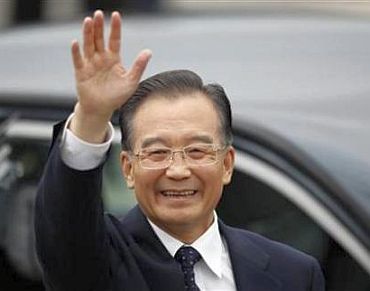
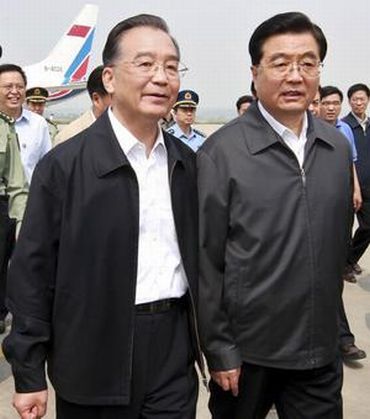
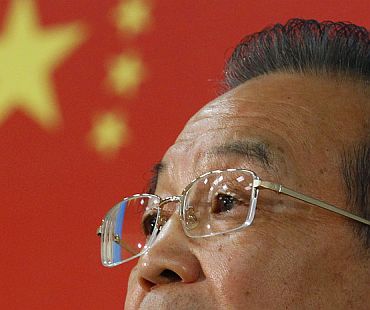
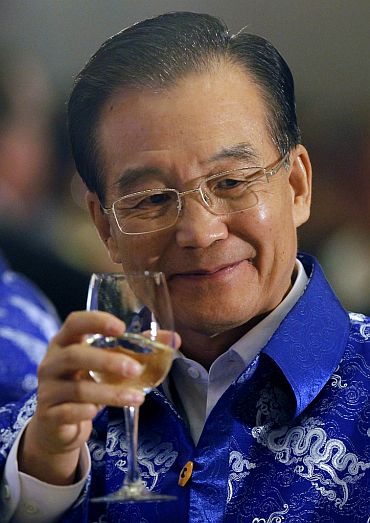
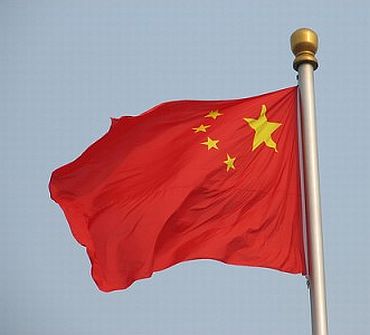
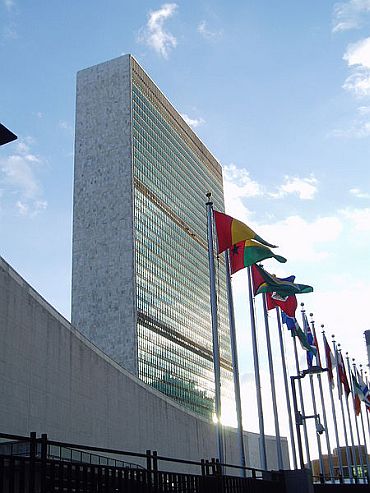
article